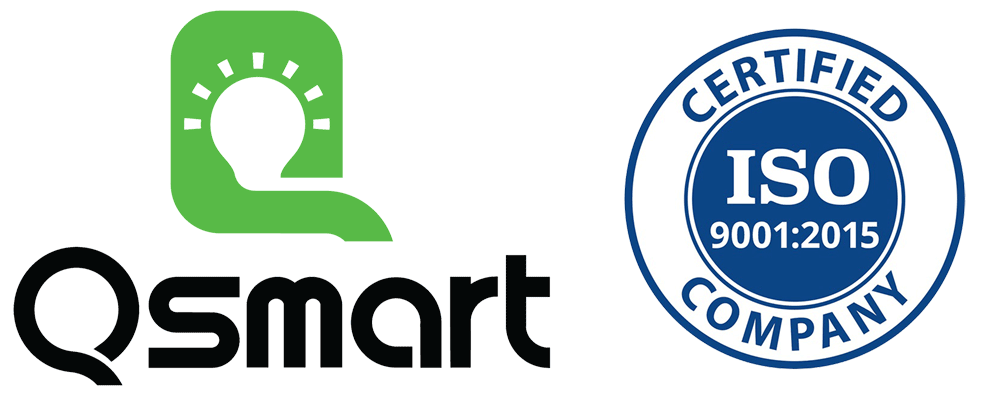In today’s digital age, where online visibility can make or break a business, Search Engine Optimization (SEO) stands as a powerful tool for enhancing visibility and driving organic traffic to websites. In Qatar’s competitive market, where businesses strive to establish a strong online presence, mastering the art of SEO is essential for success. This blog post delves into the secrets of effective SEO strategies tailored specifically for Qatar businesses, highlighting its importance, unique landscape, key components, and real-world success stories.
Understanding the Unique SEO Landscape in Qatar
Qatar’s SEO landscape encapsulates a unique blend of opportunities and challenges that businesses must navigate to establish a strong online presence and thrive in the digital marketplace. Despite being geographically small compared to larger countries, Qatar boasts a burgeoning digital economy propelled by a tech-savvy population and a growing internet penetration rate. This presents businesses with ample opportunities to leverage SEO strategies to reach and engage with their target audience effectively.
One of the distinguishing features of Qatar’s SEO landscape is its multicultural society and diverse demographics. The population comprises a rich tapestry of nationalities, ethnicities, and cultural backgrounds, each with its own set of preferences and behaviors. As a result, businesses operating in Qatar must adopt a nuanced approach to SEO, tailor-fitting their strategies to resonate with the diverse audience segments they aim to reach. Understanding the intricacies of local search habits, language preferences, and cultural nuances is paramount for crafting effective SEO strategies that resonate with Qatar’s multifaceted audience.
For instance, businesses targeting expatriate communities may need to optimize their websites and content in multiple languages to cater to the linguistic diversity prevalent in Qatar. Additionally, they may need to tailor their messaging and offerings to align with the cultural preferences and sensibilities of different audience segments. On the other hand, businesses targeting Qatari nationals may need to incorporate local references, customs, and traditions into their SEO strategies to establish authenticity and foster trust among the local audience.
Moreover, Qatar’s digital landscape is influenced by unique socio-economic factors, including its status as a rapidly developing nation with a high standard of living. This translates into distinct consumer behaviors and preferences, such as a penchant for luxury brands and high-quality products and services. Businesses must factor in these socio-economic dynamics when crafting their SEO strategies, ensuring that they resonate with the aspirations and preferences of Qatar’s affluent consumer base.
In summary, understanding the unique SEO landscape in Qatar requires businesses to recognize and adapt to the multifaceted nature of its population, cultural diversity, and socio-economic dynamics. By tailoring their SEO strategies to cater to the preferences and behaviors of different audience segments, businesses can maximize their online visibility, engage with their target audience effectively, and drive business growth in Qatar’s dynamic digital ecosystem.
Key Components of an Effective SEO Strategy
The key components of an effective SEO strategy encompass a comprehensive approach aimed at enhancing a website’s visibility, relevance, and authority in the eyes of search engines. By integrating these components seamlessly, businesses can improve their rankings on search engine results pages (SERPs) and attract a steady stream of organic traffic. Let’s delve deeper into each component:
1. Keyword Research and Optimization:
Keyword research forms the foundation of any successful SEO strategy. It involves identifying the search terms and phrases that potential customers are using to find products, services, or information related to the business. Once relevant keywords are identified, they are strategically incorporated into various elements of the website, including:
- Website content: Ensuring that the content addresses the user’s search intent while naturally integrating keywords to enhance relevance.
- Meta tags: Optimizing meta titles, meta descriptions, and meta keywords to accurately reflect the content of the webpage and attract clicks from users.
- Headings: Utilizing keywords in headings (H1, H2, etc.) to provide structure and context to the content while signaling relevance to search engines.
2. Content Creation and Optimization:
High-quality, informative content lies at the heart of effective SEO strategies. Content creation involves producing valuable and engaging material that resonates with the target audience and addresses their needs and interests. Content optimization, on the other hand, entails:
- Ensuring that content is optimized for relevant keywords without compromising readability or user experience.
- Incorporating multimedia elements such as images, videos, and infographics to enhance engagement and appeal to different learning styles.
- Regularly updating and refreshing content to reflect changes in user preferences, industry trends, and search engine algorithms.
3. On-Page SEO:
On-page SEO focuses on optimizing the technical elements and content of individual webpages to improve their visibility and relevance in search engine rankings. Key aspects of on-page SEO include:
- Website structure: Ensuring a logical and intuitive website structure that facilitates easy navigation for users and search engine crawlers.
- Page load speed: Optimizing page load times to enhance user experience and reduce bounce rates, which can negatively impact rankings.
- Mobile responsiveness: Ensuring that the website is fully optimized for mobile devices, as mobile-friendliness is a significant ranking factor for search engines.
- Internal linking: Creating a network of internal links between related pages to improve navigation, distribute link equity, and enhance crawlability.
4. Off-Page SEO:
Off-page SEO focuses on building authority and credibility for the website through external factors such as backlinks, social signals, and online reputation management. Key components of off-page SEO include:
- Building authoritative backlinks from reputable websites in the same industry or niche, as backlinks are one of the most important ranking factors for search engines.
- Fostering social media engagement and sharing content across social platforms to increase visibility, attract traffic, and amplify the website’s reach.
- Managing online reviews and reputation by actively monitoring and responding to customer feedback, addressing any issues promptly, and cultivating a positive online presence.
By incorporating these key components into their SEO strategy, businesses can optimize their online presence, improve their rankings on SERPs, and ultimately drive more traffic, leads, and conversions. Each component plays a crucial role in enhancing the overall effectiveness and performance of the SEO strategy, contributing to long-term success in the competitive digital landscape.
Case Studies or Success Stories of Businesses in Qatar Leveraging SEO
Numerous businesses in Qatar have reaped the benefits of effective SEO strategies. For example, a local e-commerce retailer saw a significant increase in website traffic and sales after implementing targeted SEO campaigns focused on optimizing product pages, improving website speed, and earning quality backlinks. Similarly, a hospitality business experienced a boost in bookings and reservations by optimizing its website for local search queries and leveraging content marketing to showcase its unique offerings to potential customers.
ChatGPT
Indeed, the impact of effective SEO strategies on businesses in Qatar is tangible and transformative. Let’s delve deeper into two compelling case studies that highlight the success stories of businesses leveraging SEO in Qatar:
Case Study 1: Local E-commerce Retailer
A local e-commerce retailer specializing in fashion apparel and accessories sought to increase its online visibility and drive more traffic to its website. Recognizing the potential of SEO to achieve these goals, the retailer embarked on a targeted SEO campaign encompassing various strategies:
- Optimizing Product Pages: The retailer conducted thorough keyword research to identify high-value keywords related to its products. These keywords were strategically incorporated into product titles, descriptions, and meta tags to improve their visibility and relevance in search engine results.
- Improving Website Speed: Recognizing the importance of website speed in user experience and search engine rankings, the retailer optimized its website for faster loading times. This involved optimizing images, reducing server response times, and implementing browser caching to enhance overall website performance.
- Earning Quality Backlinks: The retailer focused on building quality backlinks from reputable websites within the fashion industry. By earning backlinks from influential fashion bloggers, online publications, and industry directories, the retailer enhanced its website’s authority and credibility in the eyes of search engines.
The results were remarkable. The e-commerce retailer witnessed a significant increase in website traffic, with more users discovering its products through organic search. Moreover, the improved search engine rankings translated into higher conversion rates and increased sales, ultimately driving business growth and profitability.
Case Study 2: Hospitality Business
A hospitality business operating a boutique hotel in Qatar sought to boost its online presence and attract more guests to its property. Leveraging SEO as a key component of its digital marketing strategy, the business implemented several targeted tactics:
- Optimizing for Local Search Queries: Recognizing the importance of local search for the hospitality industry, the business optimized its website for relevant local keywords and phrases. This included incorporating location-based keywords into website content, meta tags, and business listings to improve visibility in local search results.
- Content Marketing: The business invested in content marketing initiatives to showcase its unique offerings, amenities, and experiences to potential guests. By creating informative blog posts, destination guides, and guest testimonials, the business provided valuable information to travelers while positioning itself as a trusted authority in the hospitality sector.
The results were impressive. The hospitality business experienced a surge in online bookings and reservations, with more guests discovering and choosing its property through organic search. The targeted SEO efforts not only increased website traffic but also enhanced brand visibility and credibility, solidifying the business’s position as a premier destination for travelers visiting Qatar.
In summary, these case studies underscore the transformative impact of effective SEO strategies on businesses in Qatar. Whether it’s an e-commerce retailer driving sales or a hospitality business attracting guests, SEO serves as a powerful tool for increasing online visibility, driving traffic, and achieving business objectives in Qatar’s competitive digital landscape.
Conclusion: In conclusion, effective SEO strategies are indispensable tools for Qatar businesses striving to thrive in the digital landscape. By understanding the unique SEO landscape, implementing key components of SEO strategy, and learning from successful case studies, businesses can enhance their online visibility, attract more qualified leads, and ultimately drive business growth. As evidenced by real-world success stories, the ROI of investing in SEO can be substantial, making it a worthwhile investment for businesses in Qatar. Therefore, businesses are encouraged to prioritize SEO as a foundational element of their digital marketing efforts, positioning themselves for long-term success in Qatar’s competitive marketplace.

